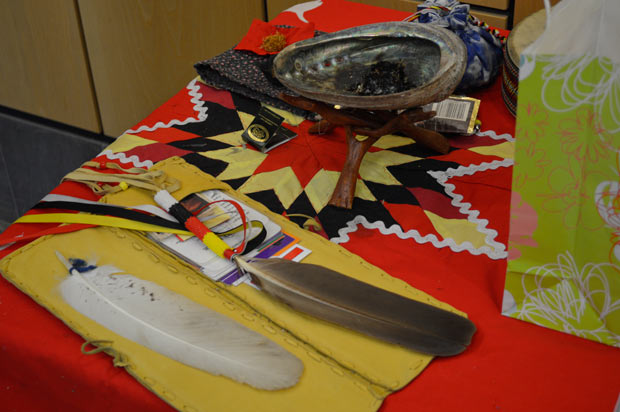
Former students at Indian Residential Schools can keep their records private, share them, or preserve them for history
Regina – INDIGENOUS — The Indian Residential Schools Adjudication Secretariat has launched a program to alert former students who made claims of abuse at Indian Residential Schools about their options on what happens to the records from their claims.
The Secretariat has set up a new website, www.MyRecordsMyChoice.ca, where claimants can find information about their options.
On September 19, 2027, records of claims made in the Independent Assessment Process (IAP) or the earlier Alternative Dispute Resolution process (ADR) will be destroyed unless claimants ask for a copy for themselves, or choose to share or preserve them.
“We have developed a robust Notice Program that includes, training of Health Support Workers across the country, paid advertising, social media, earned media, and other tools,” said Dan Shapiro, Chief Adjudicator of the Independent Assessment Process. “It is designed to reach Indigenous people in all regions of Canada so that claimants can make an informed choice about what they want to do with their records.”
Claimants may wish to request copies of their IAP or ADR records, to keep or to share as they choose. Those who wish to preserve their records for history may choose to share them with National Centre for Truth and Reconciliation (NCTR). The NCTR has been created to preserve the history and legacy of Canada’s residential schools. Hosted at the University of Manitoba, it already includes millions of records about residential schools, including statements from former students and other records gathered by the Truth and Reconciliation Commission (TRC), historical documents, and information about former students and staff.
To share their records with the NCTR, claimants must complete a consent form. The consent form is available on the www.MyRecordsMyChoice.ca website. Claimants who aren’t sure whether they want to share their records can request a copy of their records from the Indian Residential Schools Adjudication Secretariat to review before they make a decision. To request a copy of their records they can contact the IAP Information toll-free at 1-877-635-2648 or visit www.MyRecordsMyChoice.ca. The records in each claim are safeguarded by the Indian Residential Schools Adjudication Secretariat until September 19, 2027, which is 15 years after the deadline for IAP applications. Four IAP records from each claim will be kept until that date: the completed application form, the audio recording and transcript of the claimant’s testimony, and the adjudicator’s decision.
The question of what would happen to these records was addressed at several levels of Canadian courts until it was settled by the Supreme Court of Canada in October 2017. “The Courts were clear that IAP and ADR records are private and confidential,” said Shapiro. “Claimants and no one else control their IAP and ADR records, and they alone have the right to decide what to do with them.”
The Notice Program was developed in consultation with the Assembly of First Nations, Inuit representatives, the Government of Canada, lawyers representing former students and the National Centre for Truth and Reconciliation. The
Program has been approved by the Ontario Superior Court of Justice
The Independent Assessment Process (IAP) was established under the Indian Residential Schools Settlement Agreement, the largest class action settlement in Canadian history, to resolve claims of sexual abuse and serious physical or emotional abuse suffered at Indian Residential Schools. The ADR was the predecessor of the IAP.
More than 38,000 former students at Indian Residential Schools submitted claims to the IAP. As of December 31, 2018, 99% of all claims in the IAP have been resolved. Remaining claims are expected to be resolved by 2020.
Contact: Michael Tansey
Senior Communications Consultant,
Indian Residential Schools Adjudication Secretariat
(819) 934-1444
(613) 851-4587 (cell)
michael.tansey@irsad-sapi.gc.ca
michael@tancom.ca
www.MyRecordsMyChoice.ca
http://iap-pei.ca
https://nctr.ca






